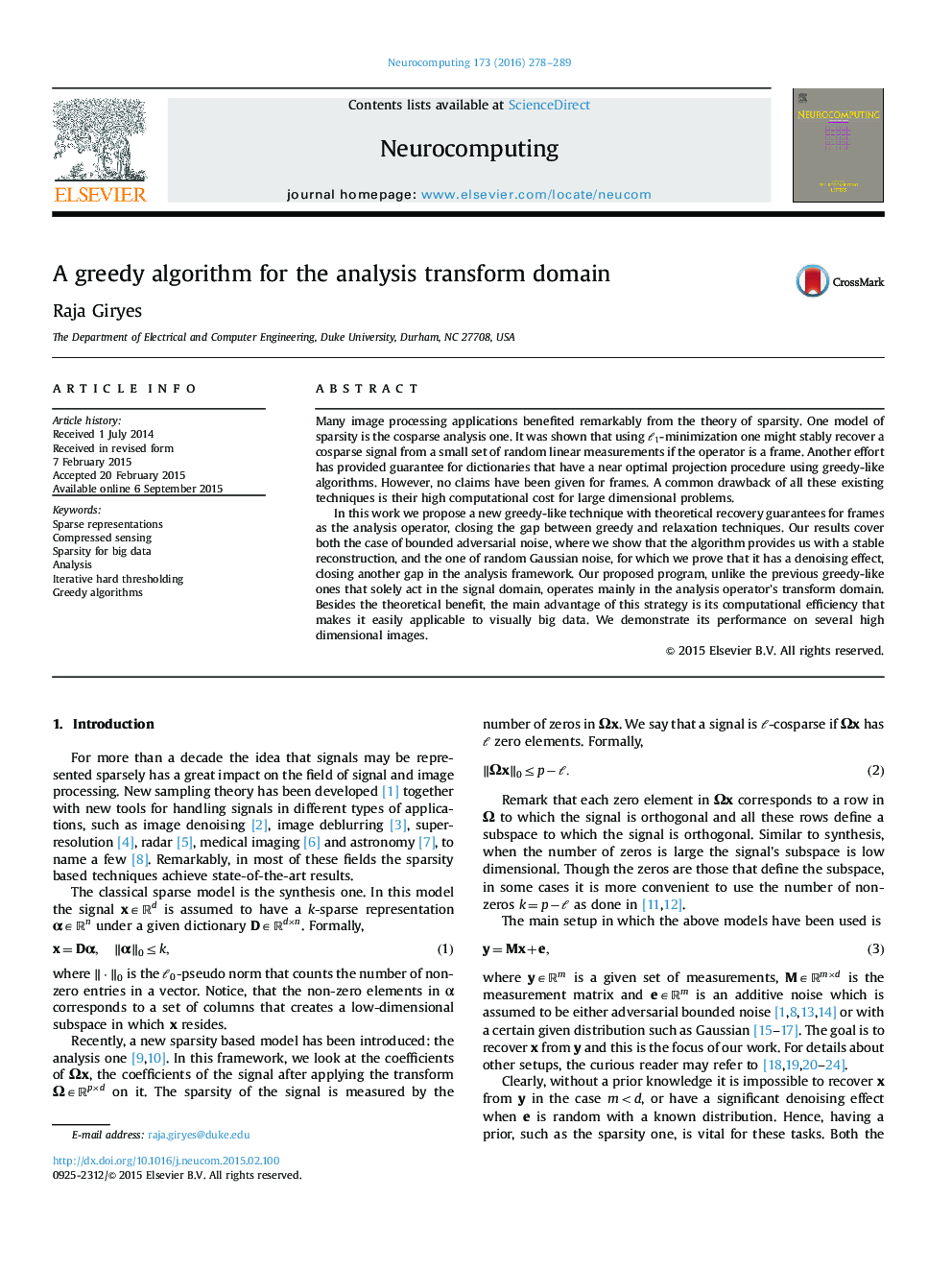| Article ID | Journal | Published Year | Pages | File Type |
|---|---|---|---|---|
| 407284 | Neurocomputing | 2016 | 12 Pages |
Many image processing applications benefited remarkably from the theory of sparsity. One model of sparsity is the cosparse analysis one. It was shown that using ℓ1ℓ1-minimization one might stably recover a cosparse signal from a small set of random linear measurements if the operator is a frame. Another effort has provided guarantee for dictionaries that have a near optimal projection procedure using greedy-like algorithms. However, no claims have been given for frames. A common drawback of all these existing techniques is their high computational cost for large dimensional problems.In this work we propose a new greedy-like technique with theoretical recovery guarantees for frames as the analysis operator, closing the gap between greedy and relaxation techniques. Our results cover both the case of bounded adversarial noise, where we show that the algorithm provides us with a stable reconstruction, and the one of random Gaussian noise, for which we prove that it has a denoising effect, closing another gap in the analysis framework. Our proposed program, unlike the previous greedy-like ones that solely act in the signal domain, operates mainly in the analysis operator׳s transform domain. Besides the theoretical benefit, the main advantage of this strategy is its computational efficiency that makes it easily applicable to visually big data. We demonstrate its performance on several high dimensional images.
